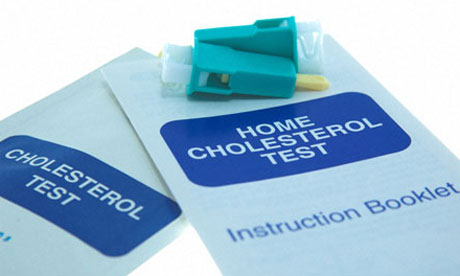
Worried that your cholesterol is high, your forgetfulness is early dementia, your tiredness is really diabetes or that bowel cancer is the cause of your bloated tummy? These days you can buy a test off the shelf in most pharmacies, and according to what it says on the packet have an answer in minutes. But before you pay upwards of £10 per check you should know what you're getting. A new report from Which? says they may not be worth the money.
What can you test yourself for?
Most self-tests are screening tests that say only that you could have a condition. You usually need a proper diagnostic check to say if you have it for sure. For example, the test for bowel cancer that is widely available involves testing for blood in your stool. This is common but can be due to other causes, such as piles. Most people with a positive test will not have bowel cancer. So you may be worried for no reason. On the other hand you could have bowel cancer and not have any bleeding. So your test may be negative and you will be falsely reassured. There are a wide variety of tests, from testing for a urinary tract infection to whether you have a genetic condition. Checks can also tell you if you have a sexually transmitted disease, or a condition such as diabetes or high cholesterol.
What are the risks?
The main risk, says Dr Danielle Freedman of the Royal College of Pathologists, is that people are not wary enough of the limitations of a test. These are largely to do with its sensitivity (how many cases of the disease it will find) and its specificity (how accurately it diagnoses a disease). A test that is very sensitive will pick up lots of potential cases because it casts a wide net so as not to miss anyone who might just possibly have the disease. One that is very specific will tell people only if they have the condition. Home tests tend to be sensitive but not specific. An example is diabetes testing. "If you test your blood glucose for diabetes an hour after eating it could be abnormally high," says Freedman, "but this is normal and happens to everyone." A man testing himself for prostate cancer may be alarmed to find a high level of prostate specific antigen but only 25-35% of men who have a biopsy after a raised PSA have the disease. A PSA test that is negative also doesn't rule it out. There is also no consensus as to whether screening saves lives as many prostate cancers are slow growing.
What should I use home tests for?
Some home tests may be good for monitoring conditions. Freedman says that women who get frequent urinary tract infections might benefit from using home tests so they can know as soon as they have an infection and get antibiotics from their doctors. People with diabetes can monitor their own glucose levels using home kits.
Before you buy a test you should have some idea of what it can tell you. For example, a test for a bacteria called Helicobacter pylori says that it can diagnose stomach ulcers but it can tell you only if you have the bacteria. You can have an ulcer without the infection and the infection without an ulcer.
When should I see my doctor?
Home tests cannot replace seeing a GP who will take a history, examine you and decide what tests you need. Even if a home test is positive, your doctor is likely to need to repeat it. So you may as well save your money.

